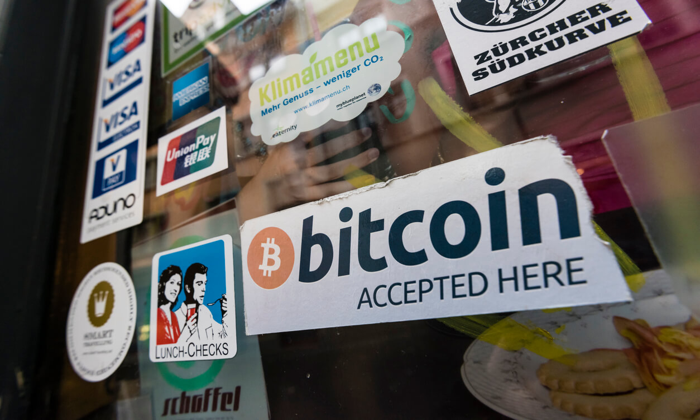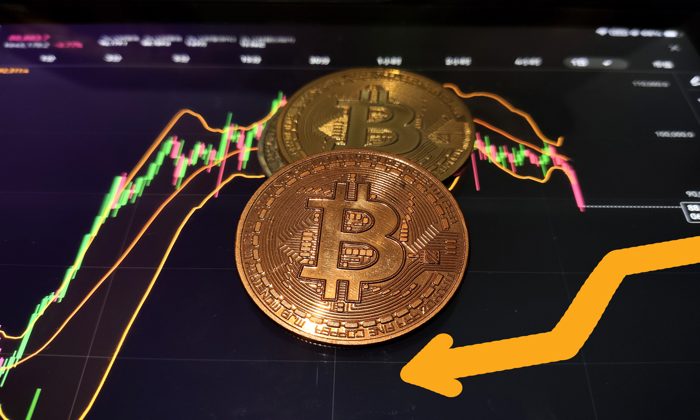Bitcoin payments at Fatburger mark a significant development in the integration of cryptocurrency into the restaurant industry. As part of the FAT Brands family, which operates numerous franchises such as Johnny Rockets and Round Table Pizza, Fatburger’s acceptance of Bitcoin for franchise royalty fees showcases financial and technological innovation. COO Thayer Wiederhorn highlights the mainstream acceptance of Bitcoin, recognizing its value as a payment option that enhances flexibility for franchise owners. This move reflects broader FAT Brands news, emphasizing the company’s commitment to modern payment solutions amid growing cryptocurrency trends. With international franchisees making up over 20% of locations, this initiative could potentially simplify operations and reduce fees for those embracing Bitcoin adoption.
The introduction of Bitcoin as a payment method at Fatburger symbolizes a shift towards embracing digital currencies within the food service sector. By enabling franchisees to utilize cryptocurrency for royalty payments, FAT Brands demonstrates its commitment to contemporary financial practices and efficiency. In a landscape where franchise royalty fees can be burdensome, accepting Bitcoin could alleviate some of the financial stress for owners of popular dining establishments. This progressive step aligns with a broader trend of cryptocurrency in restaurants, where more establishments look to integrate digital currencies to enhance customer experience and reduce transaction complexities. With the rise of cryptocurrencies, restaurants are positioning themselves to capitalize on the evolving market and consumer preferences.
The Rise of Bitcoin Payments at Fatburger
Fatburger, under the management of FAT Brands, has made a significant move to embrace Bitcoin payments, allowing franchise owners to pay their royalty fees using this decentralized currency. This decision marks a pivotal shift in the restaurant industry, highlighting the growing trend of cryptocurrency adoption in various sectors. Fatburger’s initiative is not just a fleeting trend; it reflects broader changes as restaurants begin to accept digital currencies. With Bitcoin easily facilitated through a crypto wallet, franchisees can enjoy a seamless payment process that cuts through traditional banking hurdles.
The introduction of Bitcoin payments at Fatburger showcases the chain’s commitment to staying ahead of technological advancements. By allowing franchisees to use Bitcoin, FAT Brands positions itself favorably within the competitive landscape of modern dining. Thayer Wiederhorn, the COO, emphasizes the importance of recognizing Bitcoin as a mainstream asset, reiterating the company’s forward-thinking ethos. This step is especially appealing for international franchisees, which underscores Fatburger’s global operational strategy and understanding of diverse market needs.
Frequently Asked Questions
How can Bitcoin payments at Fatburger franchise help reduce franchise royalty fees?
Bitcoin payments at Fatburger franchise offer a new method for franchise owners to pay their royalty fees efficiently. As announced by FAT Brands, franchisees can utilize Bitcoin to cover these fees, allowing for quicker and potentially cheaper transactions compared to traditional payment methods.
Is it possible to use Bitcoin for franchise royalty fees at FAT Brands restaurants?
Yes, franchise owners of FAT Brands, which includes Fatburger, can now pay their franchise royalty fees using Bitcoin. This initiative aims to support their international franchisees and streamline payment processing.
What are the benefits of Bitcoin adoption in restaurants like Fatburger?
The adoption of Bitcoin payments at restaurants like Fatburger can lead to lower transaction fees, faster payment processing, and easier cross-border transactions, especially for international franchisees. This innovation aligns with the growing trend of cryptocurrency integration in the restaurant industry.
Will I be able to make Bitcoin payments directly at Fatburger locations soon?
Currently, direct Bitcoin payments at Fatburger locations for customers are not available. However, FAT Brands is exploring the potential of integrating cryptocurrency payments for customers in the future as they observe the growing intersection of cryptocurrency in restaurants.
What prompted FAT Brands to accept Bitcoin payments for franchise operations?
FAT Brands accepted Bitcoin payments for franchise operations as part of their commitment to financial and technological innovation. COO Thayer Wiederhorn highlighted that Bitcoin’s mainstream adoption and its status as a valuable asset have encouraged the company to expand payment options for their franchisees.
Are other cryptocurrencies like Ethereum or Solana accepted at Fatburger franchise?
Currently, Fatburger franchise operations are limited to Bitcoin payments. While FAT Brands is open to the future possibility of accepting other cryptocurrencies like Ethereum and Solana, there are no immediate plans for such integration.
What will happen to Bitcoin payments made by Fatburger franchise owners?
Franchise owners who pay in Bitcoin can transfer the funds into a designated ‘crypto wallet business account.’ FAT Brands then has the option to hold the Bitcoin or convert it into USD, providing flexibility in their financial operations.
How does the FAT Brands news on Bitcoin payments reflect trends in the restaurant industry?
The FAT Brands news on Bitcoin payments showcases a broader trend of cryptocurrency adoption in the restaurant industry. With major chains exploring digital currencies, it indicates a significant shift towards integrating cryptocurrency as a viable payment option in fast-food and casual dining.
What does Bitcoin adoption mean for the future of franchise operations at Fatburger?
Bitcoin adoption at Fatburger could lead to increased efficiency in franchise operations, especially for international locations. It reflects a growing trend of embracing technology and financial innovation in the fast-food industry, potentially paving the way for further cryptocurrency integration in the future.
| Key Point | Details |
|---|---|
| Bitcoin Payments for Franchise Fees | Franchise owners of FAT Brands can now pay royalty fees using Bitcoin. |
| Franchisee Benefits | International franchisees will find it advantageous due to the efficiency of Bitcoin transactions. |
| Crypto Wallet Transactions | Franchisees can transfer Bitcoin to a designated crypto wallet for fees and royalties. |
| Future Cryptocurrency Options | The company might consider accepting other cryptocurrencies in the future, but is focused on Bitcoin for now. |
| Customer Integration | Direct Bitcoin payments for everyday customers are not yet available, but may be implemented soon. |
| Industry Trends | Other fast-food chains are exploring cryptocurrency partnerships, indicating a shift in the industry. |
| Corporate Perspective | More companies are viewing Bitcoin as a strategic treasury reserve asset. |
Summary
Bitcoin payments at Fatburger mark a significant advancement in the restaurant industry’s embrace of financial innovation. By allowing franchise owners to pay their fees using Bitcoin, FAT Brands is not only streamlining payment processes but also catering to a market that increasingly values cryptocurrency. This move positions Fatburger and its franchisees at the forefront of a growing trend, where the integration of cryptocurrency into everyday transactions can enhance operational efficiency and provide competitive advantages in a rapidly evolving digital economy.
Bitcoin payments at Fatburger mark a significant advancement in the adoption of cryptocurrency across the restaurant industry. As part of FAT Brands’ commitment to financial innovation, franchise owners of renowned eateries such as Fatburger and Johnny Rockets can now utilize Bitcoin to settle their franchise royalty fees. This integration not only enhances payment efficiency for international franchisees, who represent over 20% of the brand’s locations, but also aligns FAT Brands with emerging trends in cryptocurrency in restaurants. Thayer Wiederhorn, COO of FAT Brands, highlighted the growing recognition of Bitcoin as a mainstream asset, underscoring the company’s strategic shift towards modern financial solutions. With the potential for future expansion to other cryptocurrencies, this move presents an exciting chapter in the ongoing saga of Bitcoin adoption within the food service sector.
The latest development in the culinary landscape involves the acceptance of Bitcoin payments at Fatburger, a notable player in the restaurant franchise market. This innovative approach allows franchise owners to manage their royalty payments using digital currency, showcasing a pioneering spirit within the FAT Brands portfolio. As companies increasingly look to integrate cryptocurrency into their operations, the Fatburger chain stands at the forefront of this transformation, reflecting broader trends in Bitcoin adoption. Moreover, as FAT Brands navigates its expansion into the world of digital payments, it may soon open the door to even more cryptocurrency options, enhancing the overall dining experience while addressing franchise royalty fees more efficiently. This intersection of gastronomy and cryptocurrency not only enriches the business model but also prepares Fatburger and its fellow franchises for the future of commerce.















